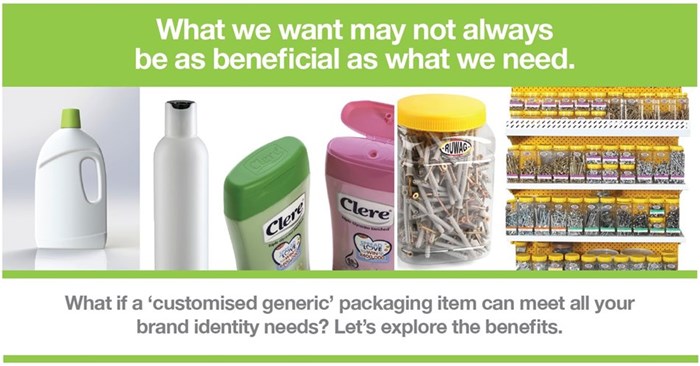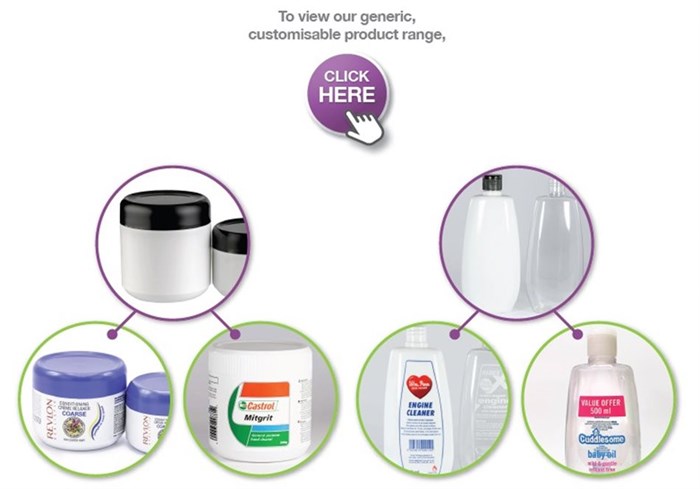When it comes to packaging design, factors such as brand identity and recognition, together with iconic shapes and custom designs, generally tops any reputable brand manager's list. But what if all these requirements can be met by a generic packaging solution? Let's explore the benefits of a 'customised generic pack'.
Reducing cost without reducing quality
In addition to eliminating initial expenditure, such as investments in moulds, a generic pack is often the more cost-effective option due to economies of scale. Being produced in larger quantities, production costs are kept at bay due to fewer mould and material changes in the convertor’s factory.
Moving towards a generic design also affords smaller and well-established brands the benefits of stock security, shorter production and delivery lead times; and improved cash flow due to more frequent, smaller order volumes.
Customisation options
But the humble generic pack does not necessarily eliminate all customisation. Packaging requirements have moved beyond the days of “you can have any colour as long as it is black". Generic packaging items can still promote brand identity and recognition by being customised, within parameters. Colour, decoration and embossing variations that drive brand differentiation is achievable and can even allow for the same packaging item to be used across diverse product categories.
Keeping EPR compliance front of mind
A generic pack can easily become the environmental star of the show, offering various benefits across the value chain. From a manufacturing perspective, the environmental cost associated with producing multiple moulds are naturally eliminated. A converter can also offer the generic item to a range of brands, allowing them to contribute to larger volumes and lower carbon footprint through more streamlined production processes. This does however mean that the converter will have the responsibility to guide the generic design to remain within the parameters of ‘designing for recyclability’ in order to achieve an optimal recycling rate. This in turn, assists the brands to also move towards full EPR compliance.
By subscribing to our newsletter database, you will receive monthly relevant industry, EPR, product and technology news, delivered directly to your inbox. Sign up here.
Mpact Plastics is a leading producer of rigid plastic packaging and cling film in southern Africa. We operate out of nine production centres across the country, providing packaging from plants with relevant certifications. We service the food, beverage, personal care, home care, pharmaceutical, agricultural and retail markets. In upholding company values, and as a supporter of the circular economy, we positively contribute to industry associations, enabling various communities to participate in recycling solutions.
For more information and a comprehensive FAQ contact us on Mpact Wadeville FMCG: 011 418 6000 | az.oc.scitsalptcapm@ofni | www.mpactplastics.co.za






































